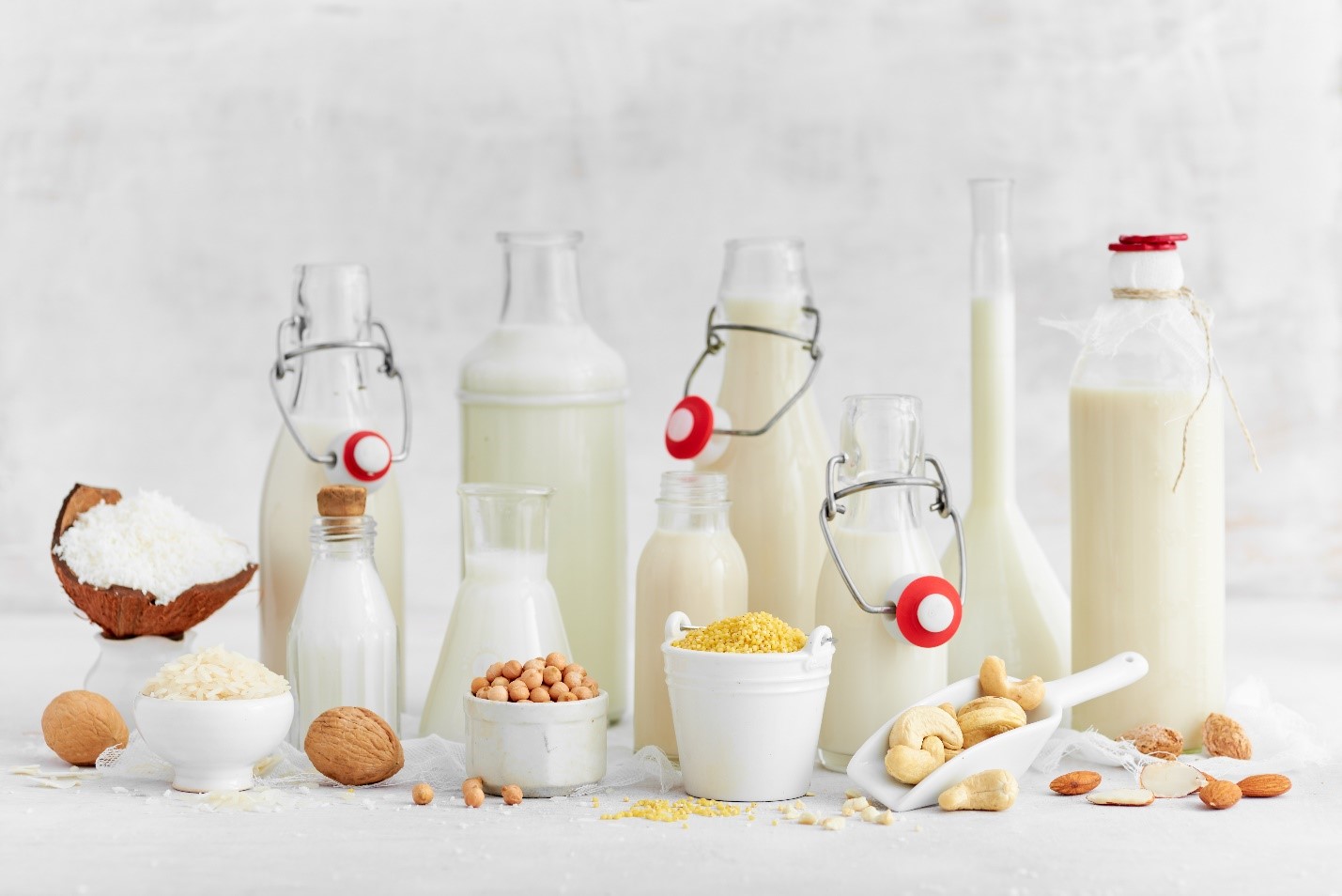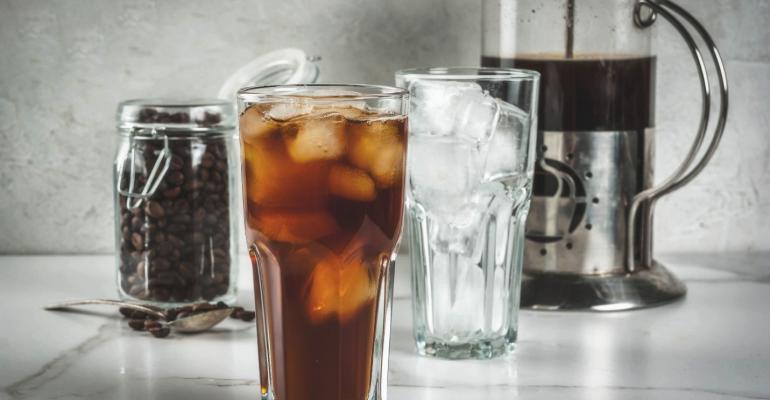Sponsored by Fetco
Everyone knows that Millennials love their coffee. In fact, according to 2016 The Language of Millennials & Coffee And the Role of Sustainability by S&D Coffee and Tea/Datassential, 25% of Millennials identify with the statement “I am a coffee expert” compared to 20% of non-millennials.
Knowing what Millennials want and gearing coffee offerings according to those expectations can result in creating a popular coffee destination that keeps them coming back.
So, what do millennials want when it comes to coffee? More, more, and more. More coffee beverage choices and different brewing methods, more milk alternative options, and more information about sustainability.
More Variety In Coffee Beverage Types – Hot and Cold – and More Brewing Methods
According to Nation’s Restaurant News, Breakfast Journal, Millennials’ Coffee Habits Percolating Big Sales (Oct. 23, 2017), millennials enjoy more types of coffee beverages than previous generations – espresso, lattes, nitro, cold brew, iced coffee and frozen coffee beverages. Although there are several reasons why, one is that millennials have come to expect Limited Time Offers and a diverse selection of specialty and premium offerings. Since they consume 44% of the coffee in this country, it is important to gear coffee offerings to this demographic.
Millennials love to use craft brewing methods at home such as French presses, pour over cones, and vacuum brewers. According to NPD’s “At-Home Craft Coffee Brewing Embraced by Young Urban Consumers”, September 14, 2016, 11% of young U.S. adults craft brew their coffee at home. They are twice as likely to use these different brewing methods than baby boomers. Since they are familiar with French presses, pour over, and vacuum brewing methods, they want that same quality and flavor away from home.
Maximizing your coffee and tea equipment resources is a great way to add to your beverage program without adding equipment. Commercial coffee equipment can be used to brew hot and iced versions of both coffee and tea on the same equipment. It is important to use color coded, dedicated brew baskets and spray heads for coffee and tea so there isn’t any cross contamination or taste transfer. Contact the manufacturer for guidance such as asking about tea infusers and if you can use a pour over or Chemex with your current equipment.
More Milk Alternative Options

Millennials are very health conscious and they care about what they put in their bodies. Gone are the days that dairy-free options are just for those with allergies and intolerances. Millennials also care about the environment and animals so plant-based alternatives appeal to this demographic.
Datassential FoodBytes “Inspiration from the Garden” cites the following reasons why consumers are looking to plant-based alternatives: They are Healthier (49%), To Try Something New (31%), To Eat Less Meat/Dairy (22%), They Taste Better (18%), They are Trendy (8%).
According to Mintel, non-dairy milk sales has grown 61% between 2012 and 2017. So, what does this mean? Offering milk alternatives can be a smart choice when millennials are involved. Offering almond, soy, hemp, rice and oak milk are hot right now. Oat milk is a good choice for those who have dairy and nut allergies. Oat milk is generally gluten-free, but it may be processed in a plant where other grains with gluten present. It is imperative to read all labels when offering dairy-free options to properly communicate to customers.
More Information About Sustainability

Millennials care about the environment and they want to know the sustainable story behind the products they purchase. In S&D Coffee and Tea/Datassential’s “Millennials: The Language of Coffee and The Role of Sustainability”, research found that the term “Sustainable Sourcing” consistently resonated with millennials. 45% of millennial think positively of a location offers sustainably sourced coffee. That tops Fair Trade Certified (44%), Locally Sourced (41%), USDA Organic (37%) and Direct Trade (36%). When asked what would influence their choice of one place over another, again Sustainably Sourced Coffee was the leading factor at 29% vs Fair Trade Certified (28%), Direct Trade (27%), USDA Organic (26%) and Single Origin (26%). Only when asked what they would go out of their way for, did Sustainably Sourced (26%) fall below Direct Trade (27%). It was higher than the others -- Locally Sourced (25%), Rainforest Alliance Certified (19%) and Single Origin (19%). Millennials are also willing to pay a slightly higher price for coffee that is sustainably sourced.



